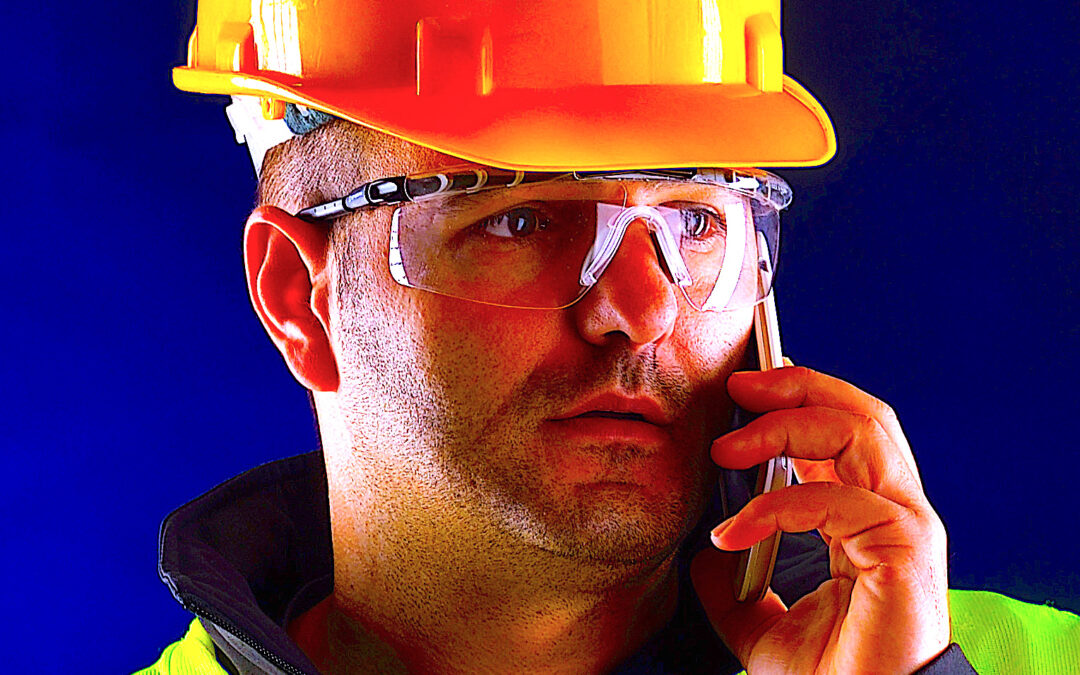Working with clients to design and implement improved maintenance models, I have found it important to interview those working in a site’s maintenance department to understand how they see themselves. It’s just as important, however, if not more so, to interview stakeholders and maintenance partners to understand how they view the maintenance department. The key, though, is to actually listen (be an active listener, that is) during these interviews. But, as author Stephen R. Covey noted, “Most people do not listen with the intent to understand, they listen with the intent to reply.”
In my many years conducting these perception interviews, I’ve noticed that the greatest frustrations expressed by maintenance clients and stakeholders have been rooted in areas of communication (and, by extension, “listening”). They include the feeling that maintenance isn’t empathetic toward their needs; the feeling that their complaints go answered; the feeling that they aren’t involved enough throughout the repair process. In many cases, this breakdown in communication has led to operations allowing identified potential failures to become catastrophic ones before ever involving the maintenance department.
THE IMPORTANCE OF ACTIVE LISTENING
By the time a work order lands in the hands of a maintainer, it has passed through a number of hands. That means the information it contains is almost always an edited and processed version of the actual failure event or event result.
The typical maintenance request chain begins with the event witness (usually the machine operator) passing on an explanation of events (or perceived events) to his or her production supervisor. This information is then edited and passed on to a maintenance service desk operator, or designate, who, in turn records, edits and passes it on to the maintenance planner. At this point, the maintenance planner processes and edits the request when converting it to a work order. The work order is then passed to the scheduler and/or supervisor, who may or may not, perform additional editing of the event based on their own past experiences, before finally passing the work instruction to the maintainer. Of course, the maintainer will then approach the job with his or her own interpretation of the work instruction and what is needed to complete a successful repair, which may not result in a first-time repair.
Although that chain of events may vary depending on the actual failure and the business process that’s employed, the event witness hasn’t been consulted or interviewed at any stage of the work-preparation chain. The person(s) who can shed the greatest light on the failure event has, in most cases, been unintentionally disregarded.
As a machine operator driving your own car or truck, you are always the first to know when your machine is not operating correctly. Among other things, you know when the vehicle pulls off center; when it makes an annoying rattle going around a corner; or when it gives off a pungent smell on startup. You may not be skilled enough to self -diagnose the problem, but you are skilled enough to explain the symptoms and under what operating circumstances they appear to a service advisor at your local dealership or garage.
A good service advisor is a skilled interviewer, schooled in active-listening techniques to pose open-ended questions to the operator mainly based on primary senses, e.g., when and what do you see, hear, smell, feel, or think is happening that leads you to believe there is a problem?
Once the operator interview is completed, based on experience the service advisor is better able to successfully narrow down the problematic system, and most likely the problematic component so that the work can be planned accordingly, and a time and cost estimate given to the vehicle owner. If more information is required at the time the repair begins, the mechanic may need to perform a second clarification interview with the operator.
Throughout the process, the service advisor has listened intently, clarifying the operator’s statements by verbalizing them back to the speaker, not jumping to conclusions, or showing judgment. In doing so, the advisor has demonstrated tactical empathy toward the operator by acknowledging his or her feelings and mindset in regard to the impending or actual failure event that’s been described, and then explaining the repair process and its impact on vehicle operation.
In an industrial environment, it is crucial that a representative of the maintenance department interview the failure-event witness to develop the most appropriate repair strategy, executed with minimal operation disruption. This will require a modified process, developed in conjunction with stakeholders, that assignsinterview responsibility to a maintenance advisor, planner, or maintainer, depending on the circumstance and repair type.
MOVE TOWARD BETTER DECISION-MAKING
Active listening is a learned skill that facilitates sound decision-making, based on actual, unedited first-hand information. This type of skilled listening builds trust and establishes stakeholder rapport that can translate to diagnosing problem events in their potential failure stage and gaining easier access to the equipment to perform repairs and adjustments.
In short, active listening is a critical element of problem-solving. As such, it makes all maintenance advisors, planners, schedulers, and maintainers excellent candidates for active-listening training.TRR
ABOUT THE AUTHOR
Ken Bannister has 40+ years of experience in the RAM industry. For the past 30, he’s been a Managing Partner and Principal Asset Management Consultant with Engtech industries Inc., where he has specialized in helping clients implement best-practice asset-management programs worldwide. A founding member and past director of the Plant Engineering and Maintenance Association of Canada, he is the author of several books, including three on lubrication, one on predictive maintenance, and one on energy reduction strategies, and is currently writing one on planning and scheduling. Contact him directly at 519-469-9173 or kbannister@theramreview.com.
Tags: reliability, availability, maintenance, RAM, asset management, work orders, planning and scheduling, professional development, workforce issues



